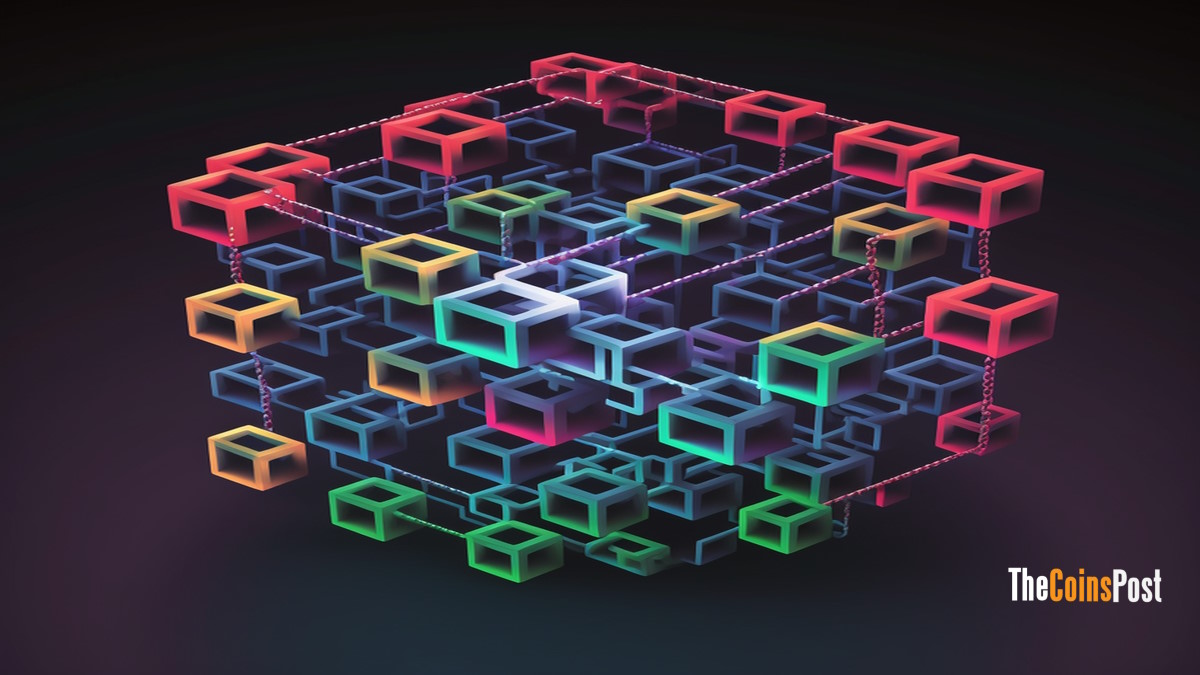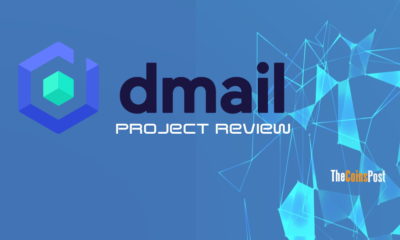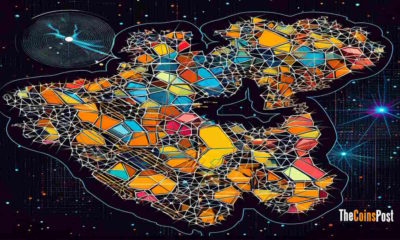Blockchain
Why is Blockchain Technology Important?

Blockchain technology is a decentralized, digital ledger that records transactions on multiple computers. These transactions are grouped together in blocks, and each block is linked to the previous one, creating a chain of blocks, hence the name “blockchain.”
Contents
Blockchain Immutability
One of the main features of blockchain technology is its immutability, meaning that once a block is added to the chain, it cannot be altered or deleted. This ensures the integrity and security of the recorded transactions. This key features of blockchain technology sets it apart from traditional forms of data storage. It refers to the ability of the blockchain to ensure that once a block is added to the chain, the data stored within that block cannot be altered or deleted.
This is achieved through the use of cryptographic techniques such as hash functions and digital signatures. Each block in the chain contains a unique hash, which is a fixed-size output of a hash function that is generated from the data stored within the block. When a new block is added to the chain, the hash of the previous block is included in the new block. This creates a chain of blocks that is linked together by these hashes, making it extremely difficult to alter the data stored within any individual block.
The immutability of blockchain technology ensures the integrity and security of the recorded transactions. It makes it virtually impossible for hackers or malicious actors to tamper with the data stored on the blockchain. This makes blockchain technology a secure and reliable option for storing sensitive data, such as financial transactions, personal identification information, and medical records.
Immutability also ensures that the data stored on the blockchain is transparent and auditable. It allows anyone with access to the blockchain to view the data stored within it, making it easy to detect and prevent fraud and other forms of misconduct. This can increase trust and accountability in a wide range of industries, such as supply chain management, voting systems, and government record keeping.
The Decentralized Nature of Blockchain
Another important aspect of blockchain technology is its decentralized nature. Unlike traditional ledgers, which are maintained by a central authority, a blockchain network is maintained by a network of computers, each of which has a copy of the ledger. This decentralization makes the network more resistant to tampering and hacking, as there is no single point of failure.
This decentralization has several important implications for the security, transparency, and scalability of the blockchain.
One of the most significant benefits of decentralization is that it makes the blockchain more resistant to tampering and hacking. With a centralized system, there is a single point of failure: if a hacker can gain access to the central authority’s systems, they can tamper with the data stored on the ledger. With a decentralized blockchain, on the other hand, there is no single point of failure. In order to tamper with the data stored on the blockchain, a hacker would need to gain control of a majority of the nodes on the network, which is much more difficult to do.
Decentralization also ensures that the blockchain is transparent and auditable. As each node on the network has a copy of the ledger, anyone with access to the blockchain can view the data stored within it. This makes it easy to detect and prevent fraud and other forms of misconduct.
Another advantage of decentralization is that it allows the blockchain to scale more easily. With a centralized system, the central authority would need to invest in more resources to handle an increase in demand. With a decentralized blockchain, on the other hand, new nodes can be added to the network as needed to handle an increase in demand.
The Future of Blockchain Technology
Blockchain technology has the potential to revolutionize a wide range of industries, including finance, supply chain management, and the Internet of Things. In the financial industry, for example, blockchain technology can be used to create decentralized, peer-to-peer payment networks that eliminate the need for intermediaries such as banks. This can reduce transaction costs and increase the speed and efficiency of financial transactions.
In supply chain management, blockchain technology can be used to track the movement of goods from the manufacturer to the consumer. This can improve transparency and accountability, making it easier to detect and prevent fraud and counterfeiting.
In the Internet of Things, blockchain technology can be used to secure and manage the communication and data exchange between devices. This can improve the security and privacy of these devices and enable the creation of new applications and services.
Conclusion
Blockchain technology is important because it offers a new way to store and manage data that is secure, transparent, and decentralized. This has the potential to disrupt existing industries and create new opportunities for innovation.
Blockchain
Fireblocks buys Australian blockchain start-up BlockFold

Fireblocks, the crypto company backed by Sequoia Capital and Coatue Management, has acquired BlockFold, a Melbourne-based start-up that helps financial institutions build blockchain-based systems.
As per Bloomberg , Fireblocks paid about $US10 million ($15.6 million) for BlockFold. While Fireblocks already works with large financial institutions, including Bank of New York Mellon, BNP Paribas and the Tel Aviv Stock Exchange, it has predominantly offered them services around custody technology.
New York-based Fireblocks is one of crypto’s most well-funded start-ups, having raised some $US1.2 billion so far. The company, which employs around 650 people in the US and Israel, was valued at $US8 billion in its latest financing round in January 2022.
The deal comes as large Wall Street firms ramp up efforts to issue and trade traditional financial assets like bonds and private-equity investments over blockchain networks, seeking to simplify processes and cut costs.
Founded in 2021, BlockFold specialises in tokenisation and smart-contract development for clients such as large financial institutions. Fireblocks and BlockFold have already worked together on projects including National Australia Bank’s recent cross-border stablecoin transfer.
Blockchain
Brazil Enhances National Identity Card Security with Blockchain Technology

In a significant stride toward modernization, Brazil is rolling out a novel national identity card system, fortified by the integration of a blockchain network. This innovative approach is set to bolster the security of data sharing between the Federal Revenue Service and civil identification authorities.
The cornerstone of this system is the shared registry known as b-Cadastros, designed to underpin the operations of the revenue service. This comprehensive platform facilitates searches, issuance, and modifications of the new ID cards and tax registration numbers. Notably, the platform’s development was orchestrated by Serpro, Brazil’s state-owned IT services corporation.
Serpro’s President, Alexandre Amorim, emphasized the pivotal role of the b-Cadastros blockchain platform in fortifying the National Identity Card project. “The use of the b-Cadastros blockchain platform is a major differentiator for the security and reliability of the National Identity Card project,” he stated.
The National Civil Identity Card (ICN) represents an upgraded iteration of Brazil’s traditional paper-based ID cards, and the nationwide issuance commenced in July 2022. The overarching goal of this project is to centralize the nation’s civil identification system and harness the ICN database to authenticate individuals accessing online public services.
The modern plastic card boasts an innovative feature: it empowers users to generate a single digital version of their identity document. This advancement enhances security, as it allows for validation through a printed QR code. In adopting blockchain technology for the ID cards, the Brazilian government anticipates streamlining processes and curbing fraud and illegal activities. Presently, individuals can request identification cards in all of Brazil’s 27 states, which presents challenges in terms of data integrity and security.
Serpro’s Amorim elaborated on the significance of blockchain technology in safeguarding personal data and thwarting fraudulent activities, thus delivering a more secure digital experience for Brazilian citizens.
The states of Rio de Janeiro, Goiás, and Paraná are set to pioneer the blockchain-based version of the national revenue service’s shared registry for the issuance of the new ID cards this week. The remaining states are poised to follow suit over the next six weeks, marking a significant step forward in enhancing the security and efficiency of Brazil’s identity verification and taxation systems.
Source: Forbes
Blockchain
Horizen’s $ZEN Holders Take the Helm with the DAO Launch

The Horizen community, get ready to embark on a revolutionary journey in governance as the Horizen DAO steps into the spotlight, as per Horizen’s new announcement.
Horizen, a public, open-source blockchain protocol, boasts a thriving ecosystem composed of developers, miners, node operators, and holders of $ZEN tokens across various blockchain networks. The introduction of the Horizen DAO paves the way for increased community involvement in decision-making and offers a platform for your voices to shape the project’s path.
Discovering the Horizen DAO
DAO, which stands for “Decentralized Autonomous Organization,” has emerged as the gold standard for decentralized governance in the blockchain world and beyond, as per Horizen’s new announcement.
Horizen has always been driven by its community, acknowledging the critical role of a strong social layer in upholding integrity throughout the ecosystem, as stated in Horizen’s new announcement. This ethos is guided by principles such as transparency, accountability, security, community engagement, continuous improvement, and social responsibility. Dive deeper into Horizen’s guiding principles on the Horizen governance page.
Stages of Proposals and Voting
The Horizen DAO takes decentralization of decision-making to new heights, encompassing both technical and non-technical aspects, along with other substantial system enhancements, as outlined in Horizen’s new announcement.
Protocol Improvement Proposals (IPs) are a well-established mechanism for selecting and implementing fresh features and fundamental protocol adjustments in numerous blockchain projects, as per Horizen’s new announcement. In Horizen’s case, these IPs are the cornerstone of the Horizen DAO’s community-driven governance. For Horizen’s primary chain and the EON sidechain, we respectively refer to these as ZenIPs and EONIPs, and they are the lifeblood of our governance process.
Ultimately, it’s the $ZEN token holders who wield the power to steer the future of Horizen, shaping the network’s evolution through active participation in the Horizen DAO, as per Horizen’s new announcement. Any holder of $ZEN can cast their vote on proposed improvements, while those with the requisite amount of $ZEN, either held or delegated, can propose changes to the community. To ensure effective community governance, users will also have the option to delegate their voting authority to individuals they trust as capable stewards of Horizen’s core values.
For a comprehensive understanding of the Horizen DAO, including its proposal phases, voting procedures, Constitution, and more, we invite you to explore the Horizen Governance page. Join us on this exciting journey to help mold the future of Horizen – we’re delighted to have you on board, as announced by Horizen.
-

 Altcoins5 years ago
Altcoins5 years agoProject Review: Pi Network, a New Scam Project in Town
-

 Bitcoin4 years ago
Bitcoin4 years agoBitcoin Worth $1.2M Seized From Arrested Indian Hacker
-

 Altcoins6 years ago
Altcoins6 years agoReview: Play Arcade Games Inside ARK Wallet And Win Some Free Cryptocurrency
-

 Blockchain6 years ago
Blockchain6 years agoA Full Review: Utopia A New Decentralized P2P Blockchain
-

 Bitcoin6 years ago
Bitcoin6 years agoAnother Exit Scam: NovaChain Shuts Down
-

 Exchanges5 years ago
Exchanges5 years agoCrex24 Will Require KYC Verification
-

 Bitcoin6 years ago
Bitcoin6 years agoJohn McAfee Has Gone Missing
-

 Blockchain6 years ago
Blockchain6 years agoProject Review: Dmail Decentralized Blockchain Email




















